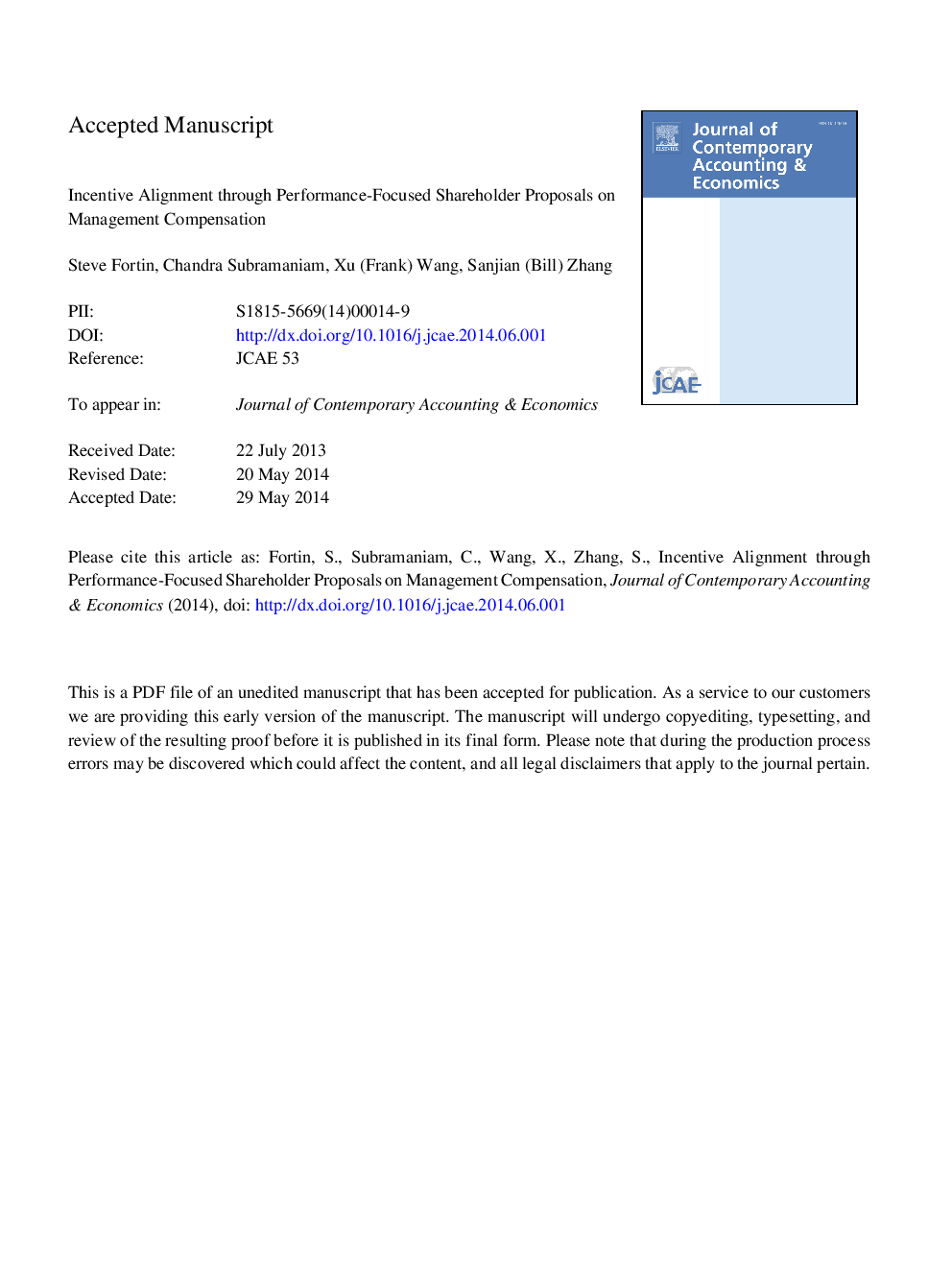| Article ID | Journal | Published Year | Pages | File Type |
|---|---|---|---|---|
| 5092934 | Journal of Contemporary Accounting & Economics | 2014 | 54 Pages |
Abstract
We investigate an emerging pay-performance activism under a natural setting of performance-focused shareholder proposals rule (PSPs) (Rule 14a-8) established by the Securities and Exchange Commission (SEC) for top management compensation. We find that: (1) PSP sponsors successfully identify firms that suffer from a misalignment of managers and shareholders' interests; (2) CEOs' pay-for-performance sensitivity increases in the post-proposal period; and (3) shareholders benefit through positive stock returns as related to proposal filing dates; while (4) bondholders suffer significant negative returns and even more so for high-leverage firms. Our additional analyses suggest that perceived risk increase is the main driver of observed negative abnormal bond returns. However, we fail to find similar results for shareholder proposals not focused on performance (NPSPs). Collectively, our results indicate that shareholders benefit from this pay-performance activism through PSPs (but not NPSPs), but potentially at the expense of bondholders.
Related Topics
Social Sciences and Humanities
Business, Management and Accounting
Business, Management and Accounting (General)
Authors
Steve Fortin, Chandra Subramaniam, Xu (Frank) Wang, Sanjian (Bill) Zhang,
